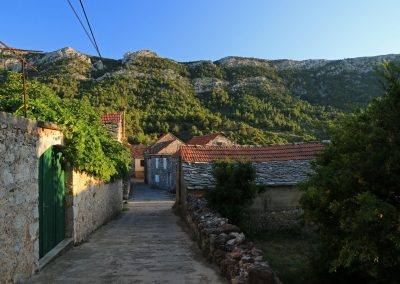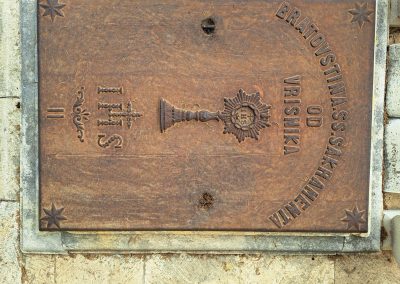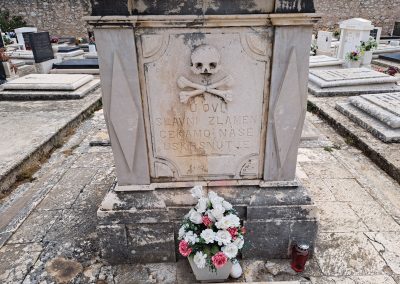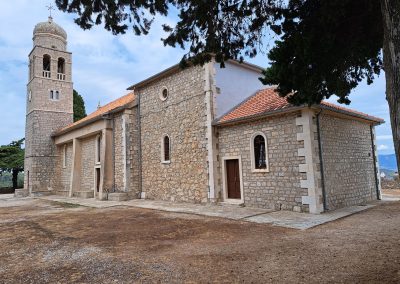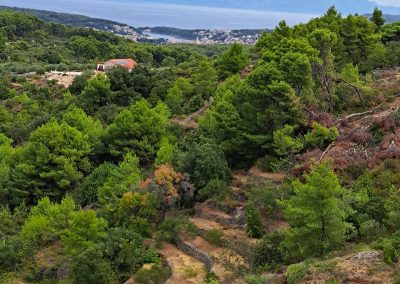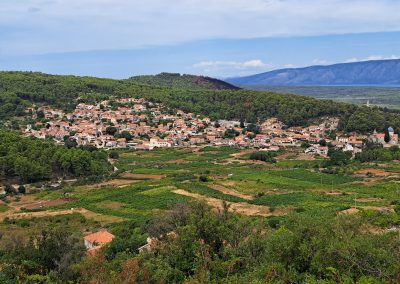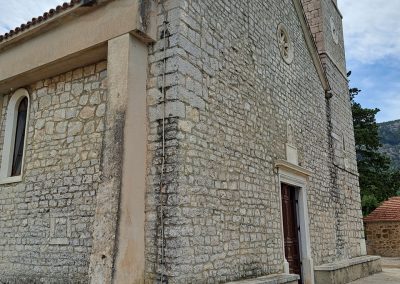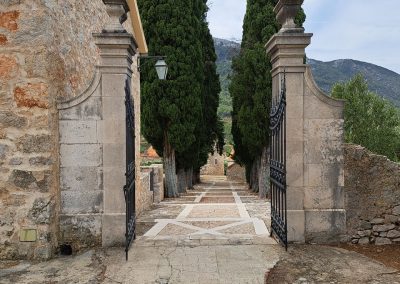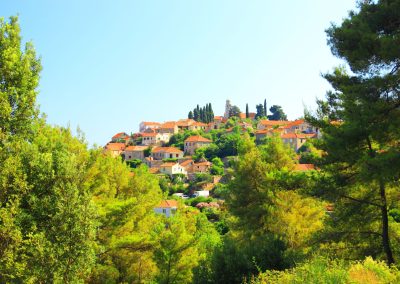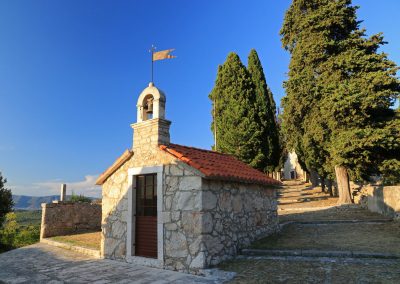Vrisnik, island of Hvar
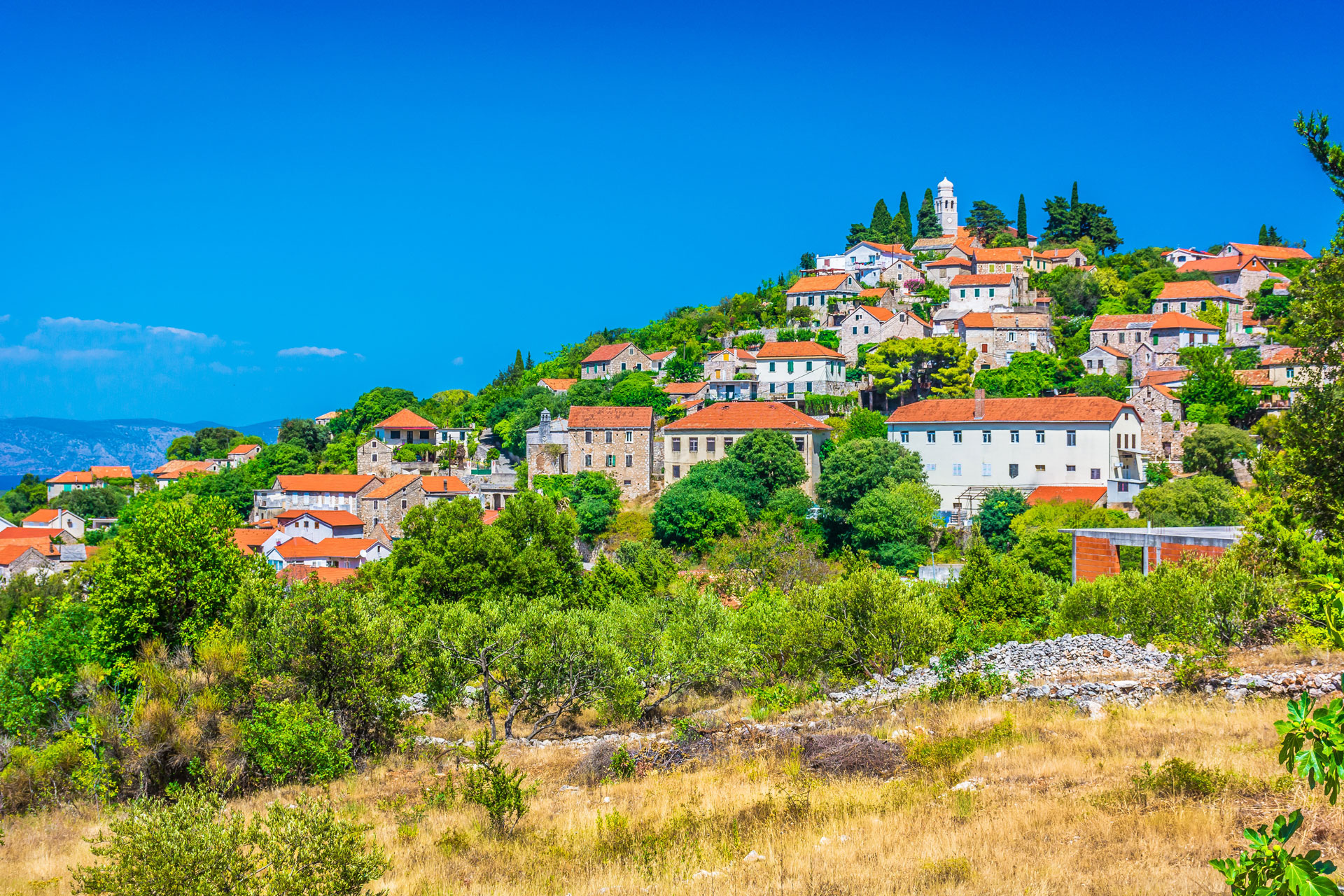
Vrisnik
It was named after heather. The cry of life, the purple-blue torches, the color with which the stone burns, also emerged with the humanity of the place Vrisnik. On the slopes and hillsides of St. Nicholas, at 252 meters above sea level, a hundred meters above Pitve, Vrisnik looks out at Svirče in the palm of its hand, and Jelsa in the distance as it bravely touches the infinity of the sea.
In this part of Hvar Island, where it is the widest from east to west and also the highest, in the labyrinth of hills, cliffs, and slopes, by the logic of the struggle for survival, there are great chances for “hiding” and retreating… because in the jaws of the beast, often, only insignificance saves. The density of this labyrinthine part of Hvar, populated by the villages of Pitve, Vrisnik, Svirče, Vrbanj, and Dol, is a collective cry in the darkness of survival uncertainty and peace found in the harmony of self-sufficiency through endurance. The range from the skeletal remains of World War II to the fat and reckless kings offers an approximation of the concept of “ARROGANCE” as an ethical-moral metronome. “To be in someone’s skin” is actually a fundamental realization through comparison, in the manner of the skill of empathy. While we entertain ourselves with the deconstruction of the concept of “subjectivity,” often with very serious and detrimental consequences, history goes its own way… The infinite eye of Justice is more patient than any human endurance and fear until they become redundant and pointless to themselves.
In 1900, Vrisnik had 708 inhabitants, and in 2021, it had 186 inhabitants. In 1991, the settlement of Humac was separated, which was mentioned in 1857 under the name Vrisnić. It is a wonderful example of emerging from the self-sufficiency of concealment, to a 350-meter-high elevation with a panoramic view of the vastness. The expansion of the space we allow our consciousness reflects all the potential of our progress.
At the highest part of Vrisnik dominates the complex of the Church of St. Anthony the Abbot and the Church of St. Roch from the 17th century, with a beautiful cemetery and view, as a point from which Vrisnik spirals downward.
